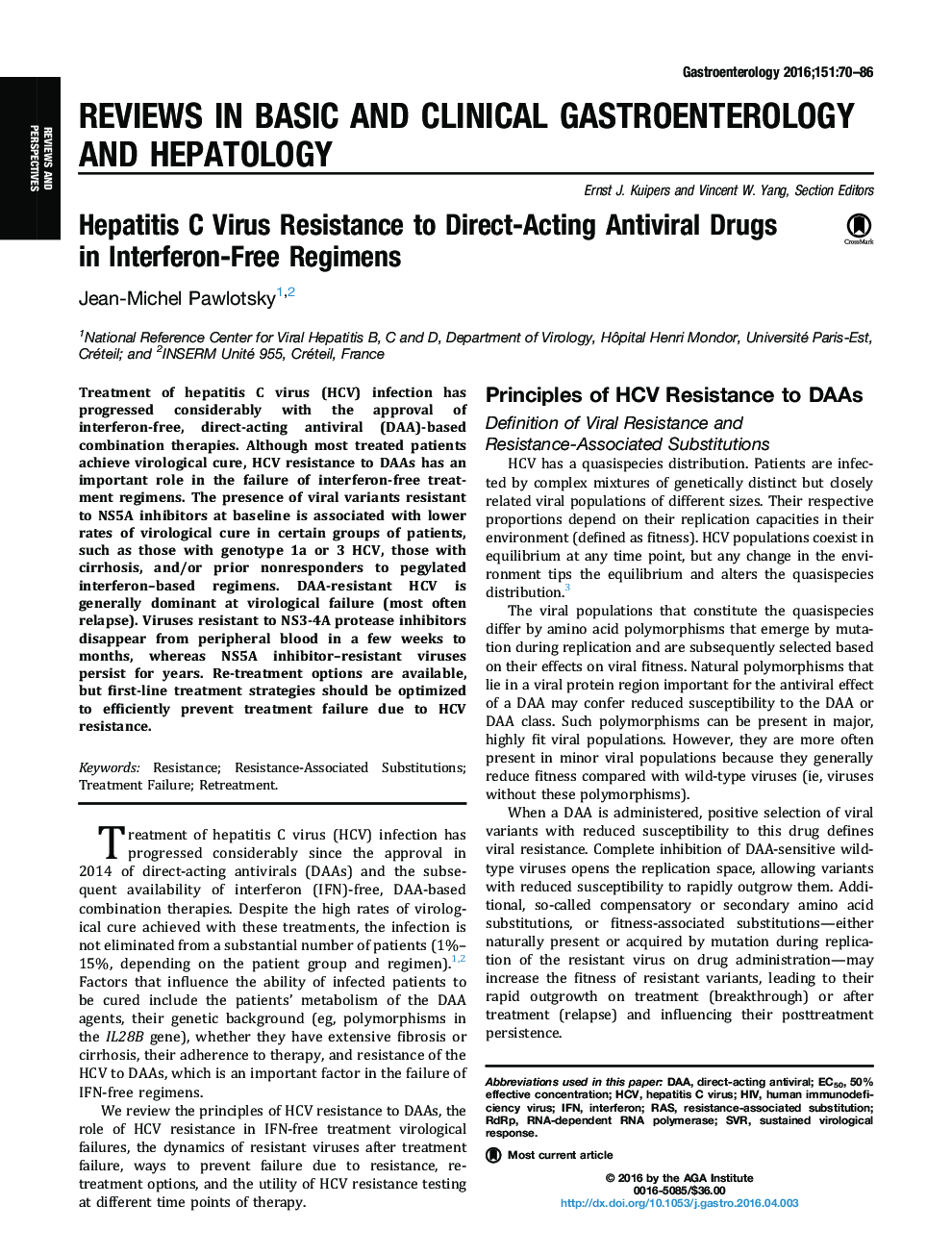| Article ID | Journal | Published Year | Pages | File Type |
|---|---|---|---|---|
| 3291995 | Gastroenterology | 2016 | 17 Pages |
Treatment of hepatitis C virus (HCV) infection has progressed considerably with the approval of interferon-free, direct-acting antiviral (DAA)-based combination therapies. Although most treated patients achieve virological cure, HCV resistance to DAAs has an important role in the failure of interferon-free treatment regimens. The presence of viral variants resistant to NS5A inhibitors at baseline is associated with lower rates of virological cure in certain groups of patients, such as those with genotype 1a or 3 HCV, those with cirrhosis, and/or prior nonresponders to pegylated interferon–based regimens. DAA-resistant HCV is generally dominant at virological failure (most often relapse). Viruses resistant to NS3-4A protease inhibitors disappear from peripheral blood in a few weeks to months, whereas NS5A inhibitor–resistant viruses persist for years. Re-treatment options are available, but first-line treatment strategies should be optimized to efficiently prevent treatment failure due to HCV resistance.
